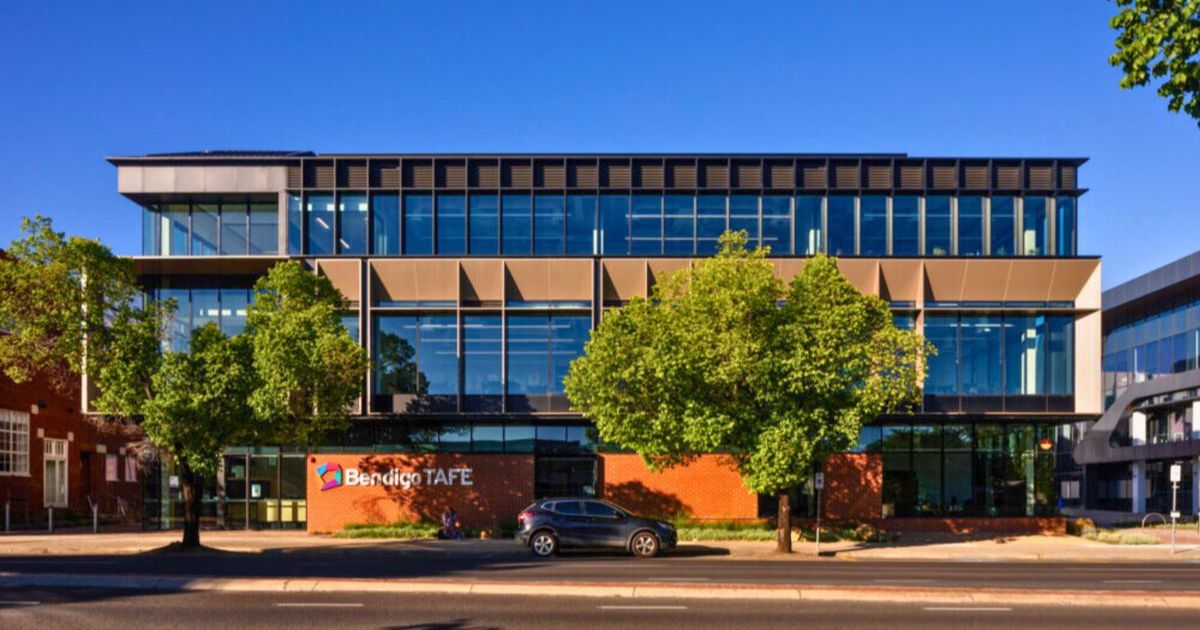PM’s Avenue the stage for NAIDOC closer

Policy vs protest: Michael Westlake, Hedley Thomson and Nicola Ingram performed powerfully in Sunday’s chilly weather to a large supportive, but solemn crowd of all ages. Photo: EDWINA WILLIAMS
FACING Up, a travelling outdoor performance at the Ballarat Botanical Gardens Prime Ministers’ Avenue closed Ballarat’s NAIDOC Week calendar last Sunday.
Focussing on the attitudes, policy and statements of the Federal government towards Aboriginal and Torres Strait Islander people, and the parallel storyline of the Indigenous Protest Movement, the performance covered a timeline from federation to recent years.
Writer, Lynden Nicholls created the political piece last year for the Biennale of Australian Art, with historical advice from Federation University’s Associate Professor of Aboriginal History, Dr Fred Cahir.
Under her pen, many of the leaders in the play simply say, “no comment.
“I used ‘no comment,’ where the words indigenous or Aboriginal didn’t appear in Hansard at all, when a certain Prime Minister was in power,” she said.
Hansard was a big part of her research, which touched on periods and events including the petitions to the King and United Nations, the Freedom Ride, the Tent Embassy, Paul Keating’s Redfern Address, the Stolen Generation, and Kevin Rudd’s resulting apology in 2008.
“I wanted to follow the track of the Indigenous protest movement following what the government, or colonialism, had done to them. For me, it was parallel streams chronologically, the protest movement and the policy,” Nicholls said.
“It is hard to say the word policy, though, because I think until the late 1930s, the states were responsible for indigenous affairs, so in some ways, why would the Prime Minister say something about Aboriginal people?
“However, they are head of the country and it’s a colonial power… but things changed, particularly after the referendum in ‘67, because then indigenous people were counted as people and federally, that’s when they came under the jurisdiction.”
Having cast and produced Facing Up with the full support of the Ballarat Aboriginal Cooperative, Nicholls was very proud to present the piece to crowds again on Sunday afternoon.
“I thought, it has to be performed in an indigenous context. To be a part of NAIDOC week, I was incredibly honoured and humbled, and I had unanimous support from the Koori Engagement Action Group.”
She hopes the work may be used in future as a resource for school students. Sunday’s performance was videoed to be made into a documentary.


















